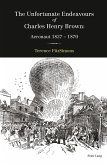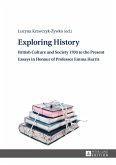The history of Anglo-Czechoslovak relations during the Second World War has generated much controversy over the past sixty years. This book examines Britain's relationship with the Czechoslovak émigrés based in London, led by Edvard Benes, from the Foreign Office's perspective. Using a wide range of materials, the author provides a rigorously post-Cold War analysis of British decision-making and policy formation on the Czechoslovak question between 1938 and 1945. He gives detailed consideration to tripartite relations with the Polish Government in exile, the Soviet Union, and the anti-fascist Sudeten German refugees in London led by Wenzel Jaksch. He also examines the British Government's attempts to promote resistance in Nazi-occupied Europe, as well as the gradual evolution of proposals to remove the Sudeten German minority forcibly from Czechoslovakia after the war.
«Brown's work is a weighty academic study... Its thoroughness and its objective stance will no doubt make it a standard work of reference on its subject. It is also a fascinating read, its serious tone lightened by the occasional revelation of nuggets of historical trivia.» (Michael Ivory, British Czech and Slovak Review)








